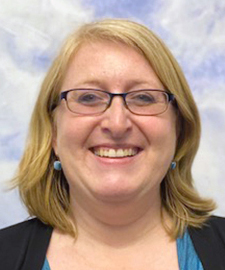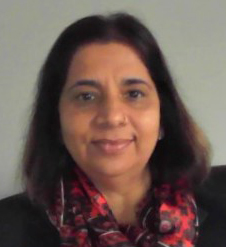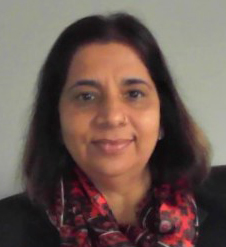Many people struggle to get help for their gambling addiction. Insurers often don’t pay for this kind of treatment — and in a large portion of the state, providers qualified to counsel clients are few and far between.
A Minnesota Department of Human Services (DHS) grant program designed to help remove financial barriers to gambling addition is working to make it easier for people around the state to get the help they need. In Mankato, Christian Family Solutions, a comprehensive mental health clinic with two certified gambling treatment providers, received a $75,000 DHS grant in July 2021 and began offering services earlier this year. The grant provides funding over a five-year period for clients from around the state to pay for gambling addiction assessments and treatment services, including counseling and other support.

Deanna Staples
Deanna Staples, a Christian Family Solutions licensed alcohol and drug counselor (LADC) and certified gambling treatment provider, said the grant funds open doors to treatment for many Minnesotans struggling with gambling addiction.
The financial support from DHS, “removes one of the biggest barriers to treatment,” Staples said. Many insurers pay for alcohol and drug treatment programs, but only for a portion of gambling treatment, she explained. The DHS grant helps cover those gaps: “If any part of their treatment is not paid for, if they have a co-pay and they can’t afford it, or if there are bills left over, the grant will pay the difference.”
Before coming to Christian Family Solutions, Staples provided gambling treatment at another area treatment facility provider that temporarily closed during the pandemic. In 2021, she came to Christian Family Solutions with the goal of launching the agency’s gambling addiction treatment offerings, so she applied for the DHS grant.

Neerja Singh
Neerja Singh, clinical director of the DHS behavioral health division, said that ongoing state funding for gambling addiction treatment is designed to make help more accessible for people struggling to quit gambling: “DHS has contracts with several providers, including Christian Family Solutions, totaling $4.15 million to help Minnesotans affected by problem gambling.”
Staples is a member of the DHS Minnesota Gambling Advisory Board. “We advocate for how we are going to help clients with their gambling addiction and how we are going to get well-rounded services to help clients in recovery,” she explained.
As part of the grant award program, callers to the Minnesota Problem Gambling Hotline (1-800-333-HOPE) from the Mankato region are transferred directly to Staples. She explained that hotline calls are routed to “the person in the nearest county to the caller. If I’m available when a call comes through, I will answer, or they can leave a message and I will call back the same day.” Staples tells callers about assessment and treatment options, and about how the DHS funding can make treatment affordable.
The funding support is key for many people, Staples explained — gambling addiction often causes rising debt and serious money woes. “I’ve had people be hesitant to call for help because of their financial situation. I’ve had clients who are $50,000 in debt because of bad checks. I’ve had clients who wrote bad checks at a casino and they got charged with a felony because it is over a certain amount of money.”
Thanks to the state grant, most individuals diagnosed with gambling addiction are eligible for financial support, Staples said.
“I don’t believe we’ve had any clients since the program launched in January that they have not been paid anything. I have not heard of one client getting a bill at this point.”
Counselors few and far between
In Greater Minnesota, finding a counselor certified to provide gambling addiction treatment can be difficult. In the southern half of the state, especially, Staples said gambling treatment providers are shockingly hard to come by.
“We don’t have anything for gambling treatment in this area,” she said. “Mankato is a bigger town, so we should have something or someone available. With the online gambling and the casinos in this area we are in the middle of it. I’ve seen a lot of increase with people having substance use disorder and gambling addiction.”
She wants people to be aware that gambling addiction services are available in the region. “I think it is important for people to know services are available in this area,” Staples said. “A lot of people don’t know that.”
Staples said that she can provide telehealth services for clients who prefer not travel long distances for care. But she also has some patients who come a long way to meet in her office.
“I’ve had clients who drove four and half hours to get an assessment because they wanted to do it in person and didn’t want to go into the Cities,” she said.
How treatment helps
From her work as an LADC, Staples said she sees clear connections between gambling addiction and substance use disorders. Addiction to gambling, she explained, “ties into a lot of life areas, just like alcohol and drug addiction.” One way the similarities play out is the secrecy and lies that often accompany gambling addiction. “When you are using alcohol and drugs you may be lying to people in your life. That happens a lot with gambling addiction. I’ve had clients in the past that if their family called and they didn’t answer, they knew they were at a casino where they didn’t have service. They’d just disappear and not tell people where they were going.”
Though Christian Family Solutions counselors use a Christian perspective in their other work with clients, the gambling addiction program is non-religious.
“When we are treating people in our dual diagnosis program, when a client is having mental health group, they can talk about their spirituality and about their belief in God,” Staples said. “In the dual diagnosis program we can talk about the Bible, do devotions. With the gambling grant, I am not able to bring a Christian perspective to it. The state grant specifically says, ‘No affiliation with any belief systems.’”
When a person comes to her through the state hotline or through another source like a probation officer, Staples completes an assessment to determine if gambling addiction treatment would be appropriate.
If a client is local, Staples said she prefers to see them in person in her office. “It feels more comfortable and personable,” she said. She also completes assessments on Zoom. After the assessment is completed, Staples determines, using the Diagnostic and Statistical Manual of Mental Health Disorders (DSM-IV), if they are eligible for treatment services. “Then I call them back up and talk about their results and tell them this is what I recommend.”
In treatment sessions, Staples explained that she helps her clients complete different projects and assignments to help them gain a better understanding of their addiction. “I have one (project) where clients do a timeline of the first time they remember gambling in any way,” she said. “Was it paying cards with parents or poker with your friends when you were 12?”
Once the client identifies the root of their gambling habit, they work to understand how it grew out of control, Staples said. “When did it get to be more often? What kinds of gambling was it? I might find out there was a death in the family that triggered a lot of isolation. Maybe they were doing some of that isolating in the casinos.”
Singh said that not all gambling leads to addiction. “While gambling provides entertainment for many people, for some, gambling becomes problematic,” she said. “Problem gambling behaviors can impact not only gamblers but their family, friends, co-workers and communities.” Staples said the grant also provides funding for counseling services for family members of individuals with negative gambling behaviors.
Staples often uses techniques commonly used with individuals with substance use disorder.
“Sometimes, we talk about harm reduction,” she said. “I worked with a person who was gambling six days a week. It was hard for them to suddenly get down to zero days a week. I helped them go down to two days a week, and they saw that so much less money was being spent.” Eventually, with Staples’ guidance, her client completely stopped going to the casino.
Like any other addiction, gambling can get out of control and make a person feel helpless.
“I see a lot of people who come in on their own saying they just can’t do it anymore,” Staples said. “They gamble all day, every day. They don’t have a relationship with friends and family anymore. In desperation, they reach out for help — and I am there to help them put their lives back together again.”
